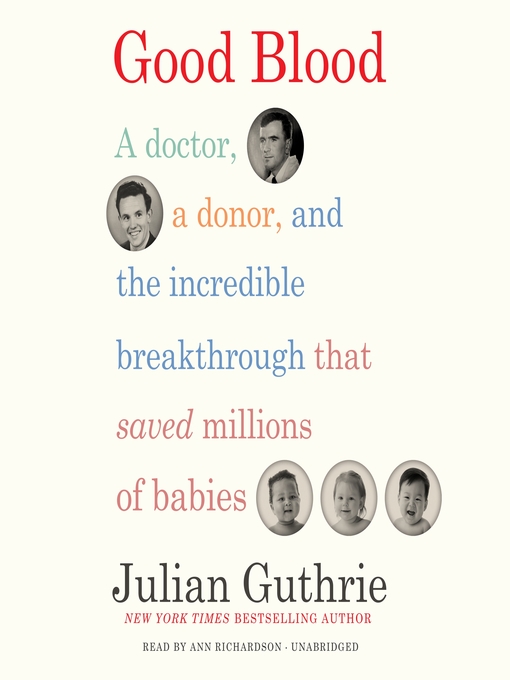A remarkable, uplifting story about one of the greatest medical breakthroughs of the 20th century.
In 1951 in Sydney, Australia, a fourteen-year-old boy named James Harrison was near death when he received a transfusion of blood that saved his life. A few years later, and half a world away, a shy young doctor at Columbia University realized he was more comfortable in the lab than in the examination room. Neither could have imagined how their paths would cross, or how they would change the world.
In Good Blood, bestselling writer Julian Guthrie tells the gripping tale of the race to cure a horrible affliction known as Rh disease that stalked families and caused a mother's immune system to attack her own unborn child. The story is anchored by two very different men on two continents: Dr. John Gorman in New York, who would land on a brilliant yet contrarian idea, and the unassuming Australian whose almost magical blood—and his unyielding devotion to donating it—would save millions of lives.
Good Blood takes us from Australia to America, from research laboratories to hospitals, and even into Sing Sing prison, where experimental blood trials were held. It is a tale of discovery and invention, the progress and pitfalls of medicine, and the everyday heroics that fundamentally changed the health of women and babies.

